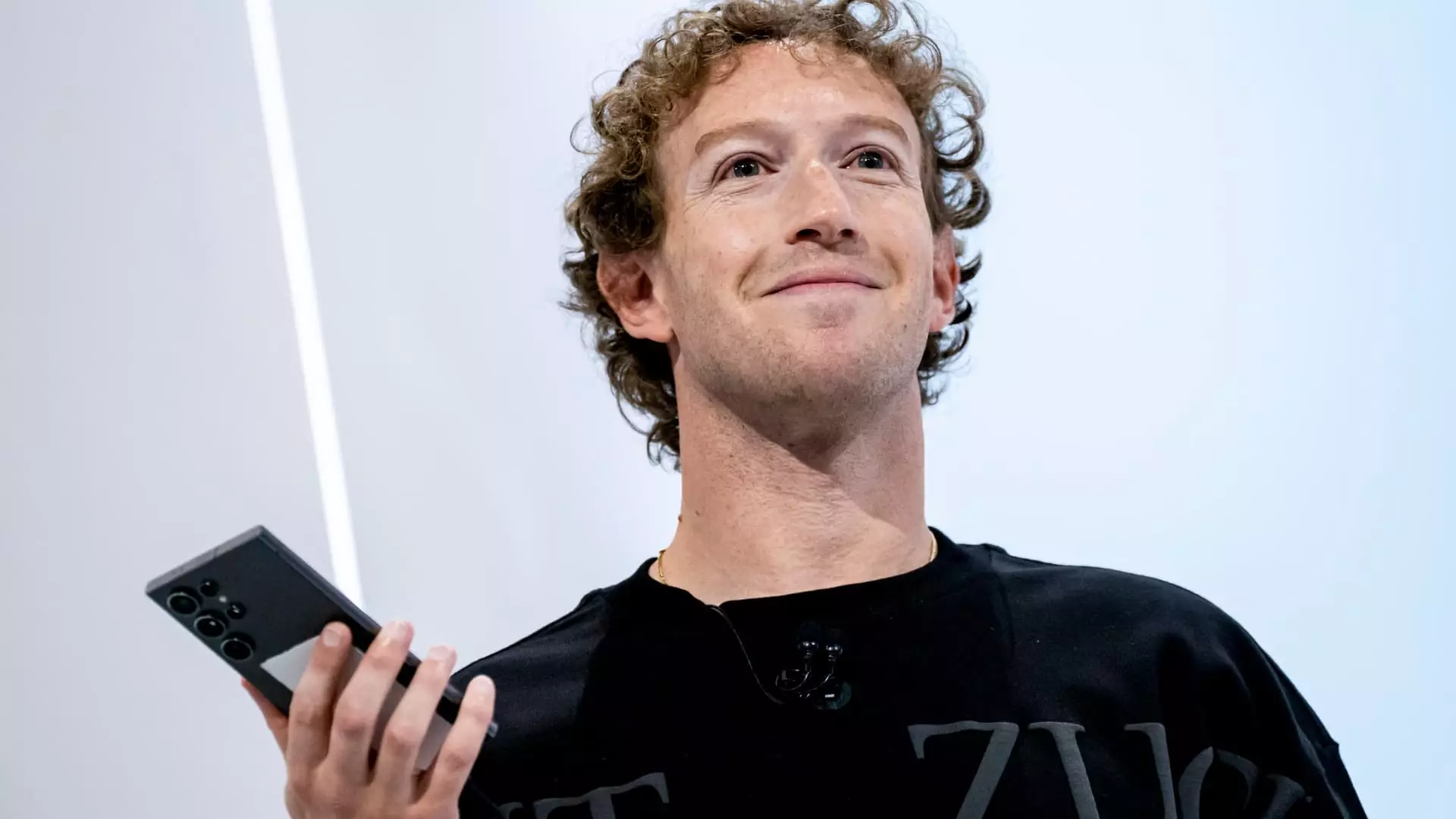In a recent installment of Joe Rogan’s podcast, Meta CEO Mark Zuckerberg ignited a firestorm of debate surrounding the censorship of COVID-19 vaccine information. In a conversation that spanned nearly three hours, Zuckerberg voiced his endorsement of vaccine distribution, while simultaneously critiquing the pressures perceived from the Biden administration to mute dissent regarding vaccine side effects. This dialogue stands as a critical examination of the complex interplay between social media platforms, government influence, and public health narratives.
Zuckerberg’s comments shed light on the palpable tension between governmental authority and the autonomy of digital platforms. He highlighted a contrasting dynamic where the Biden administration, in its zeal to advocate for vaccine uptake, allegedly coerced Meta into censoring content that presented potential vaccine side effects. “They pushed us super hard,” Zuckerberg stated, emphasizing the pressure to remove posts that, in retrospect, he believes held validity. This revelation not only raises questions about the ethical boundaries of governmental influence on tech companies but also invites scrutiny into the broader implications for free speech in public health debates.
Notably, criticism has emerged regarding the manner in which information surrounding vaccines is curated and disseminated on social media. Zuckerberg’s candor about the censorship imposed on truthful expressions points to a troubling paradox: the necessity of grounding public health messaging in transparency, while attempting to protect the broader public from misinformation. The assertion that “anything that says that vaccines might have side effects” should be regarded with skepticism complicates the narrative further, as side effects of medical interventions are a fundamental aspect of informed consent in healthcare.
In a key policy shift, Meta recently announced that it would no longer rely on third-party fact-checkers. Instead, it will embrace a model emphasizing community inputs to assess the validity of content shared on its platforms. This transition could revolutionize how information is validated online, drawing comparisons to policies instituted by other social media giants like X, which has adopted a similar stance under Elon Musk’s leadership. This change aligns Meta closer with a more participatory form of content regulation, though it raises important questions regarding the potential for misinformation to proliferate unchecked.
Further complicating the landscape is the backdrop of political maneuvering. Following recent changes in leadership among Meta’s executives, including the appointment of a former Republican staffer to a major policy position, speculation grows that Meta is positioning itself to curry favor with new governmental leadership. Such shifts could influence how the platform navigates the contentious waters of existing and future public health crises, potentially impacting the trust users have in the information they encounter.
Public officials, including President Biden himself, have responded critically to Zuckerberg’s revelations. At a recent press conference, Biden lamented that allowing billionaires to dictate information flow on social media could lead to severe repercussions. His concerns reflect broad public unease about the intersection of wealth, power, and responsibility—a dichotomy that becomes particularly significant during a global health crisis.
The fallout from Zuckerberg’s statements raises essential questions about accountability for tech platforms. As public entities endeavor to combat misinformation, they must tread carefully to balance transparency with the importance of guiding sound public health decisions. The need to engage with dissenting voices becomes paramount, ensuring that legitimate concerns regarding vaccine safety are discussed openly rather than suppressed.
As we navigate the continuing evolution of public health communication, Zuckerberg’s insights provide vital food for thought. While advocating for vaccinations is undoubtedly essential in curbing disease spread, fostering an atmosphere conducive to genuine discussion about the implications of these medical interventions is equally critical.
The current discourse surrounding vaccine side effects is poised to shape future public health strategies, particularly as we confront an era of heightened scrutiny over misinformation. Ultimately, the challenge will be to foster an environment where truthfulness prevails, ensuring that individuals feel empowered to engage thoughtfully in the discourse around their health, informed by both benefits and potential risks.


Leave a Reply